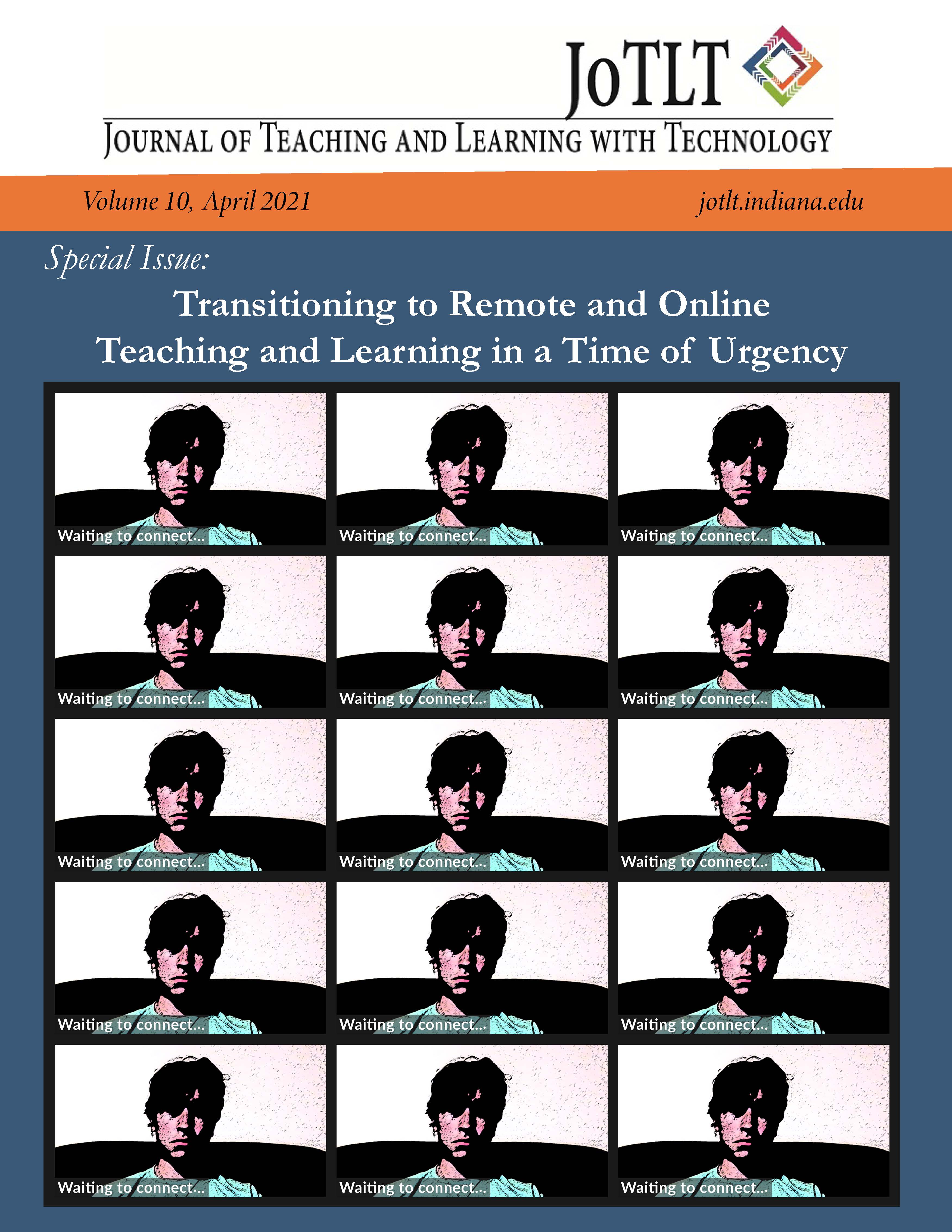With a Little Help from our Friends: Teaching Collectives as Lifelines in Troublesome Times
Main Article Content
Abstract
Emergencies have a way of changing the orientation of faculty from academic projects to surviving the unknown and coping with change. Many faculty members, because they frequently work independently, often lack support structures through which they can engage in mutual aid during times of crisis. The authors recently discovered that having a community of colleagues with whom to share ideas has made them more resilient to changing circumstances. While the Civility Community of Practice at IUPUI has been meeting since 2014 as an interdisciplinary research collective, it transitioned to a weekly online teaching and support seminar in response to the university’s unexpected move to online course delivery on account of the pandemic. This reflective essay will examine the transformative possibilities of a teaching collective in the face of crisis. From the onset of the crisis, each of the authors had personal and teaching challenges that the group’s Zoom meetings resolved. The weekly meetings involved sharing teaching tips but also basic survival strategies, tips they never imagined discussing with professional colleagues. In addition to discussing the elements that make a successful learning community, this essay will include reflections by each of the five community members about how the Zoom meetings helped them adapt to and navigate their personal and professional lives during the pandemic. In these individual reflections, the authors will discuss how moving their courses online challenged their teaching practices, motivated their experimentation with Zoom, and transformed their online classroom to impact the student learning experience.
Keywords: Community of Practice, CoP, Teaching, Learning, Online, Faculty Learning Community, COVID-19, Pandemic
Downloads
Article Details
- Authors retain copyright and grant the Journal of Teaching and Learning with Technology (JoTLT) right of first publication with the work simultaneously licensed under a Creative Commons Attribution License, (CC-BY) 4.0 International, allowing others to share the work with proper acknowledgement and citation of the work's authorship and initial publication in JoTLT.
- Authors are able to enter separate, additional contractual agreements for the non-exclusive distribution of the journal's published version of the work (e.g., post it to an institutional repository or publish it in a book), with an acknowledgement of its initial publication in JoTLT.
- In pursuit of manuscripts of the highest quality, multiple opportunities for mentoring, and greater reach and citation of JoTLT publications, JoTLT encourages authors to share their drafts to seek feedback from relevant communities unless the manuscript is already under review or in the publication queue after being accepted. In other words, to be eligible for publication in JoTLT, manuscripts should not be shared publicly (e.g., online), while under review (after being initially submitted, or after being revised and resubmitted for reconsideration), or upon notice of acceptance and before publication. Once published, authors are strongly encouraged to share the published version widely, with an acknowledgement of its initial publication in JoTLT.
